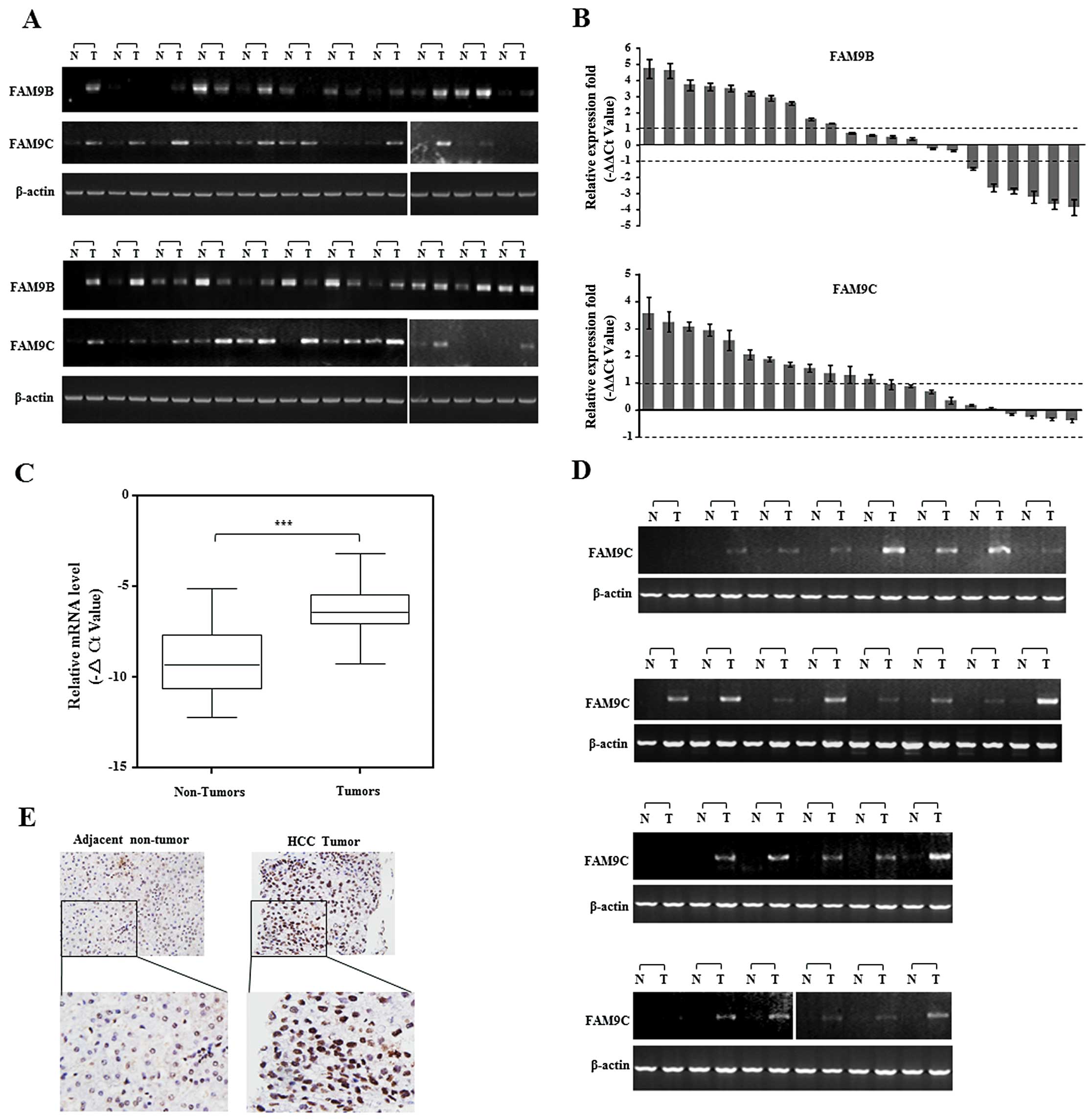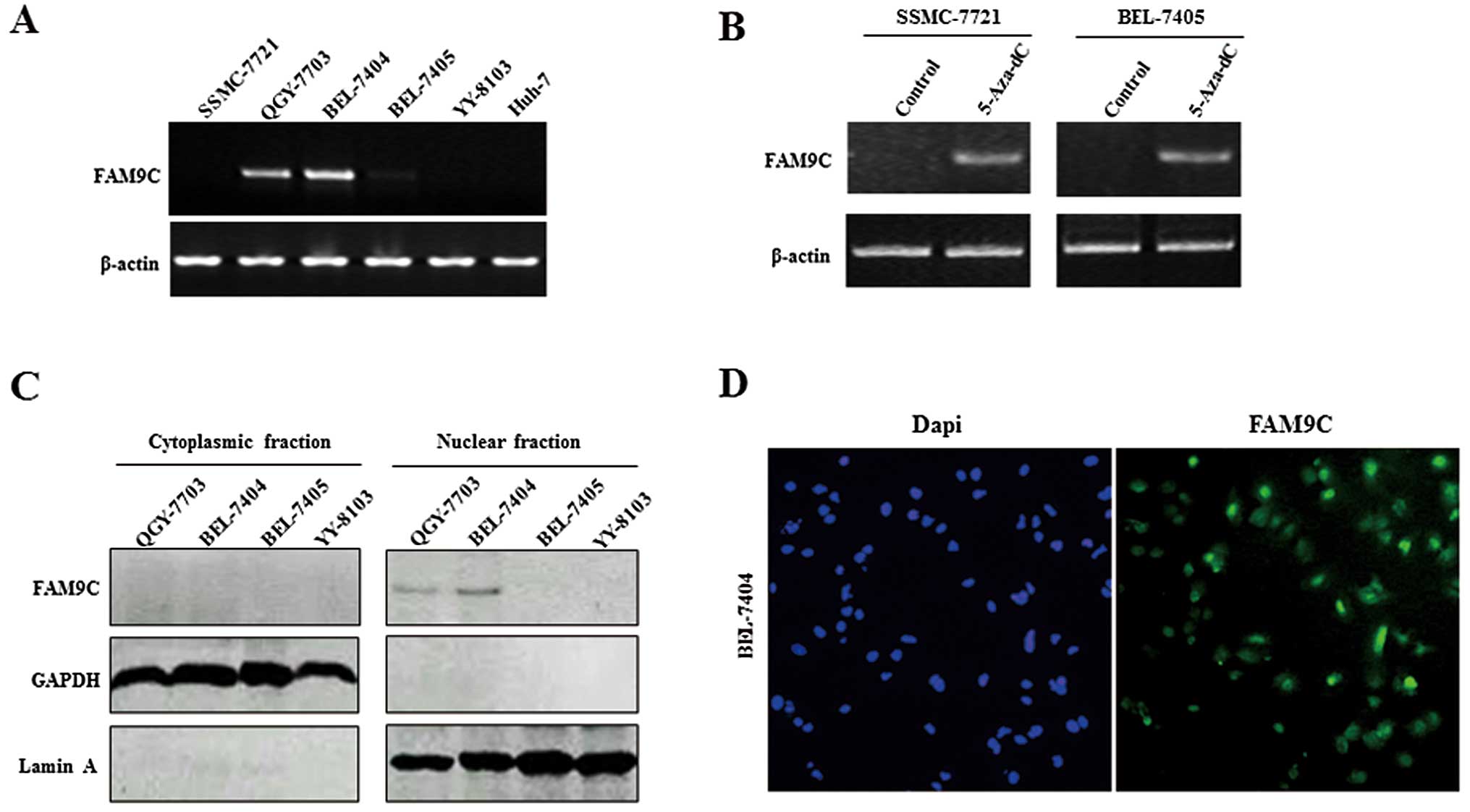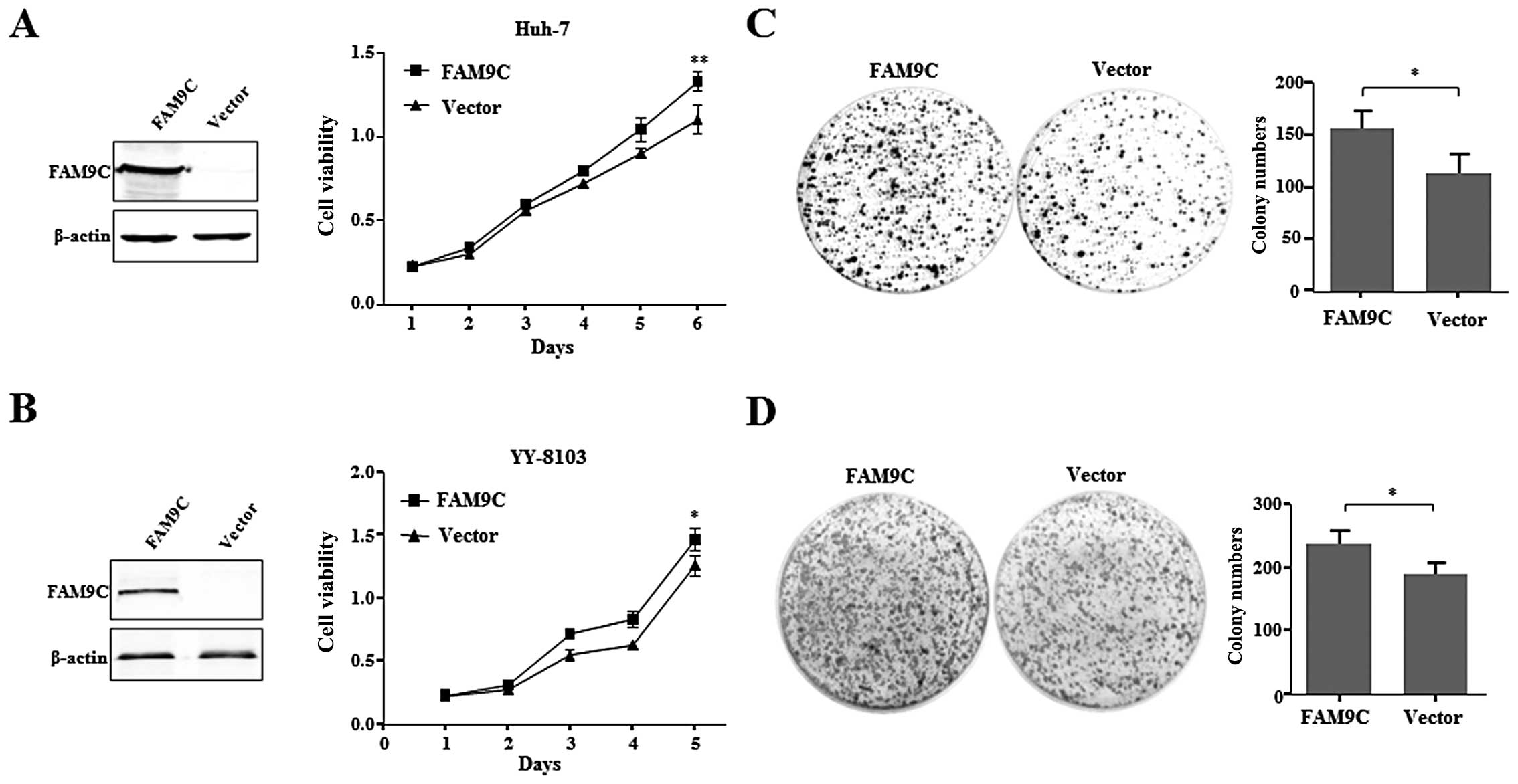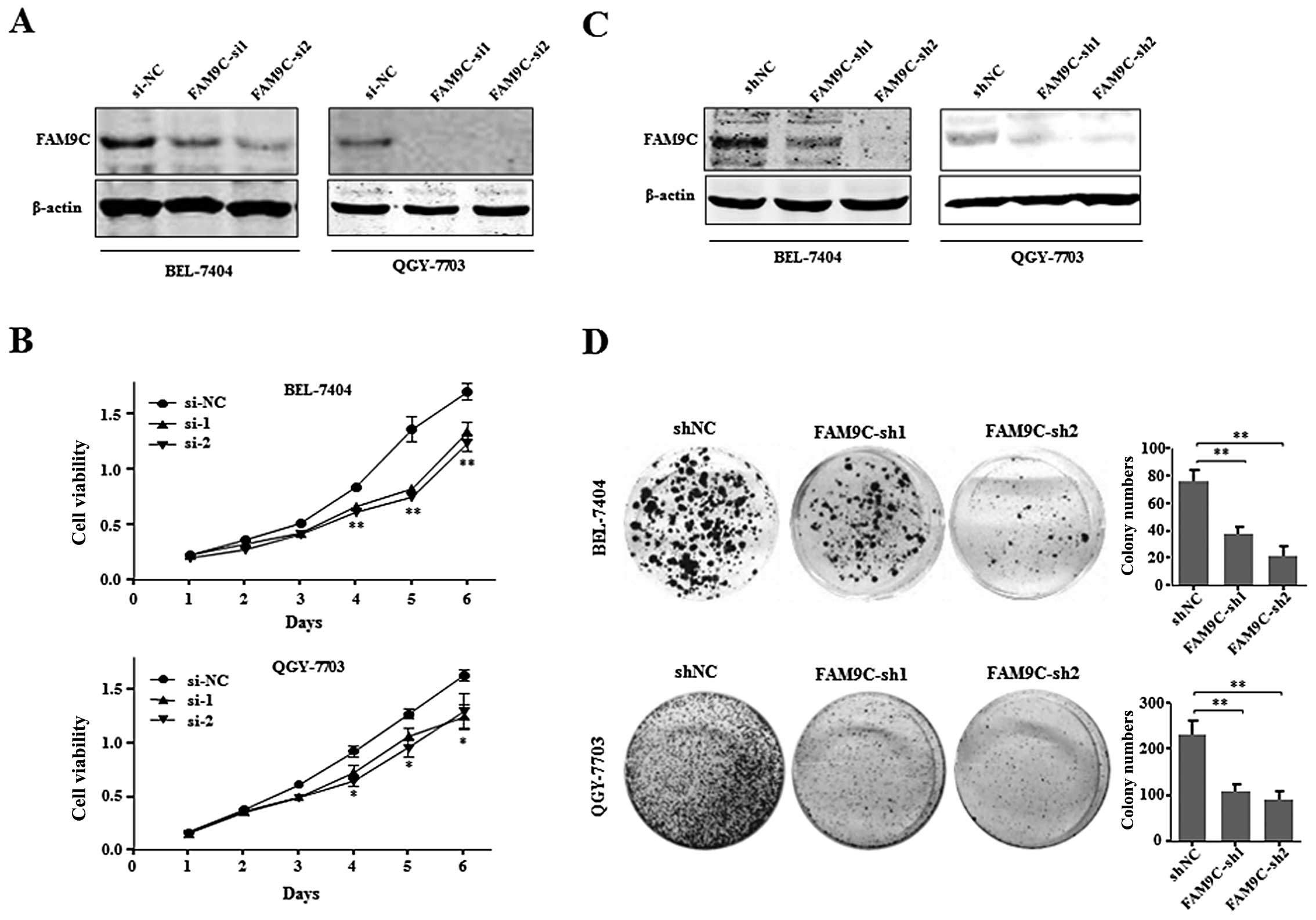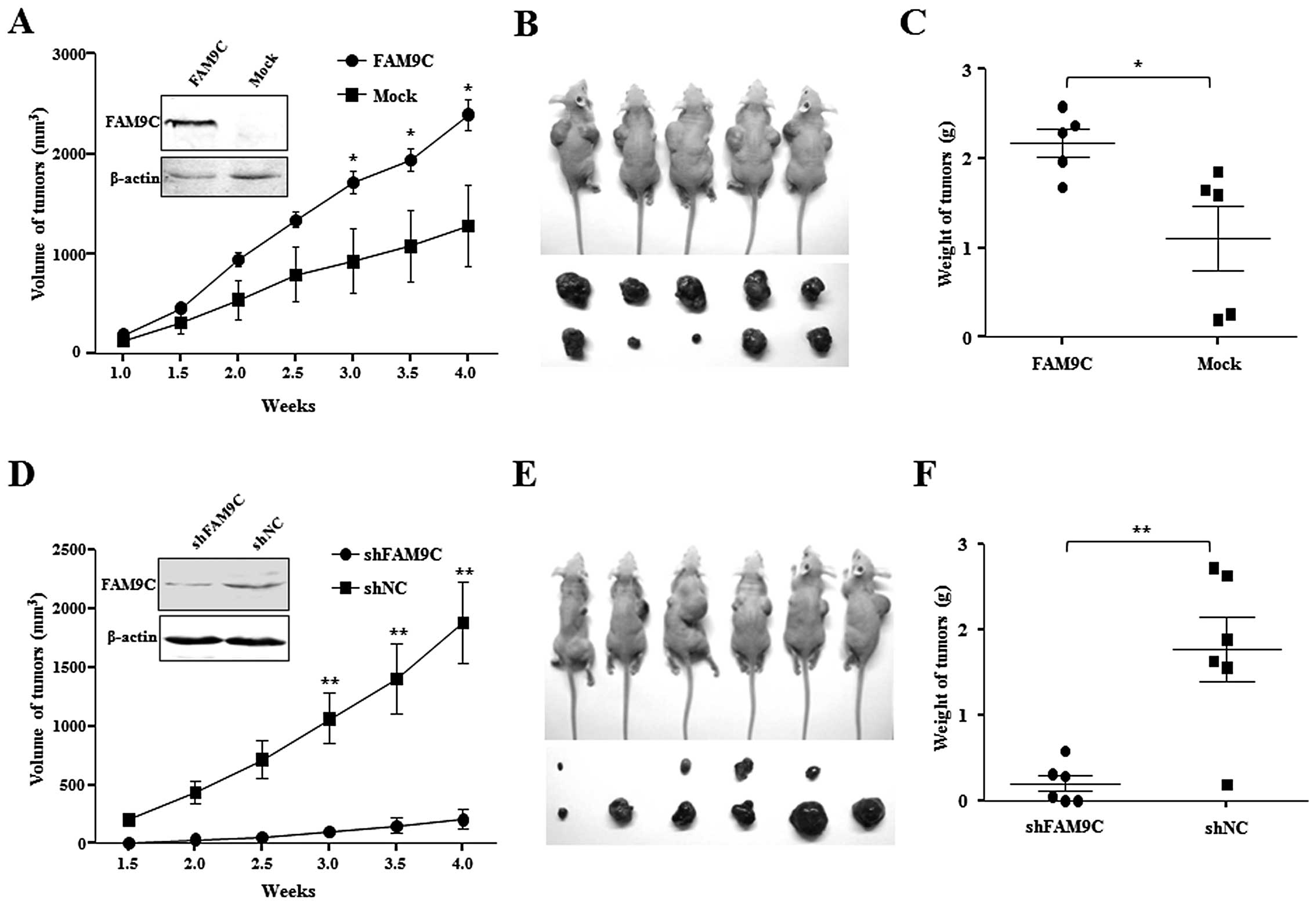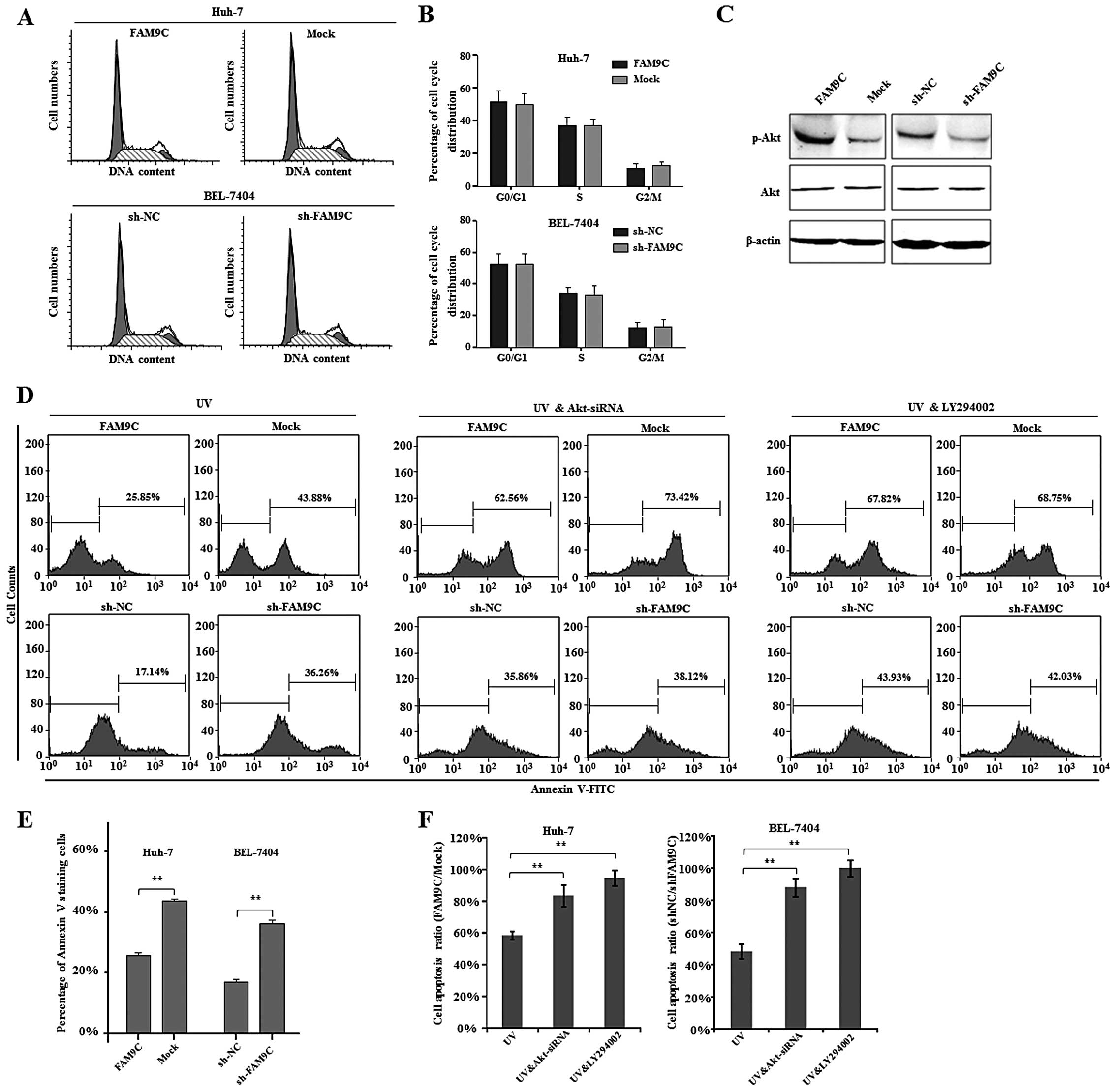|
1
|
Jemal A, Bray F, Center MM, Ferlay J, Ward
E and Forman D: Global cancer statistics. CA Cancer J Clin.
61:69–90. 2011. View Article : Google Scholar
|
|
2
|
Siegel R, Naishadham D and Jemal A: Cancer
statistics, 2013. CA Cancer J Clin. 63:11–30. 2013. View Article : Google Scholar
|
|
3
|
Kew MC: Epidemiology of hepatocellular
carcinoma in sub-Saharan Africa. Ann Hepatol. 12:173–182.
2013.PubMed/NCBI
|
|
4
|
Hoshida Y, Moeini A, Alsinet C, Kojima K
and Villanueva A: Gene signatures in the management of
hepatocellular carcinoma. Semin Oncol. 39:473–485. 2012. View Article : Google Scholar : PubMed/NCBI
|
|
5
|
Alsinet C and Villanueva A: Genomic
prognostic markers in hepatocellular carcinoma. Gastroenterol
Hepatol. 35:94–101. 2012.(In Spanish).
|
|
6
|
Sherman M: Modern approach to
hepatocellular carcinoma. Curr Gastroenterol Rep. 13:49–55. 2011.
View Article : Google Scholar : PubMed/NCBI
|
|
7
|
Simpson AJ, Caballero OL, Jungbluth A,
Chen YT and Old LJ: Cancer/testis antigens, gametogenesis and
cancer. Nat Rev Cancer. 5:615–625. 2005. View Article : Google Scholar : PubMed/NCBI
|
|
8
|
Zhao L, Mou DC, Leng XS, et al: Expression
of cancer-testis antigens in hepatocellular carcinoma. World J
Gastroenterol. 10:2034–2038. 2004.PubMed/NCBI
|
|
9
|
Peng JR, Chen HS, Mou DC, et al:
Expression of cancer/testis (CT) antigens in Chinese hepatocellular
carcinoma and its correlation with clinical parameters. Cancer
Lett. 219:223–232. 2005. View Article : Google Scholar : PubMed/NCBI
|
|
10
|
Chen K, Huang W, Huang B, et al: BORIS,
brother of the regulator of imprinted sites, is aberrantly
expressed in hepatocellular carcinoma. Genet Test Mol Biomarkers.
17:160–165. 2013. View Article : Google Scholar : PubMed/NCBI
|
|
11
|
Xu H, Gu N, Liu ZB, et al: NY-ESO-1
expression in hepatocellular carcinoma: A potential new marker for
early recurrence after surgery. Oncol Lett. 3:39–44.
2012.PubMed/NCBI
|
|
12
|
Martinez-Garay I, Jablonka S, Sutajova M,
Steuernagel P, Gal A and Kutsche K: A new gene family (FAM9) of
low-copy repeats in Xp22.3 expressed exclusively in testis:
implications for recombinations in this region. Genomics.
80:259–267. 2002. View Article : Google Scholar : PubMed/NCBI
|
|
13
|
Livak KJ and Schmittgen TD: Analysis of
relative gene expression data using real-time quantitative PCR and
the 2(−Delta Delta C(T)) method. Methods. 25:402–408. 2001.
|
|
14
|
Kang TH, Noh KH, Kim JH, et al: Ectopic
expression of X-linked lymphocyte-regulated protein pM1 renders
tumor cells resistant to antitumor immunity. Cancer Res.
70:3062–3070. 2010. View Article : Google Scholar : PubMed/NCBI
|
|
15
|
Guerrero-Preston R, Santella RM, Blanco A,
Desai M, Berdasco M and Fraga M: Global DNA hypomethylation in
liver cancer cases and controls: a phase I preclinical biomarker
development study. Epigenetics. 2:223–226. 2007. View Article : Google Scholar : PubMed/NCBI
|
|
16
|
Akhavan-Niaki H and Samadani AA: DNA
methylation and cancer development: molecular mechanism. Cell
Biochem Biophys. Mar 19–2013.(Epub ahead of print).
|
|
17
|
Niemeyer P, Tureci O, Eberle T, Graf N,
Pfreundschuh M and Sahin U: Expression of serologically identified
tumor antigens in acute leukemias. Leuk Res. 27:655–660. 2003.
View Article : Google Scholar : PubMed/NCBI
|
|
18
|
Kalejs M, Ivanov A, Plakhins G, et al:
Upregulation of meiosis-specific genes in lymphoma cell lines
following genotoxic insult and induction of mitotic catastrophe.
BMC Cancer. 6:62006. View Article : Google Scholar : PubMed/NCBI
|
|
19
|
Mobasheri MB, Jahanzad I, Mohagheghi MA,
Aarabi M, Farzan S and Modarressi MH: Expression of two
testis-specific genes, TSGA10 and SYCP3, in different cancers
regarding to their pathological features. Cancer Detect Prev.
31:296–302. 2007. View Article : Google Scholar : PubMed/NCBI
|
|
20
|
Hosoya N, Okajima M, Kinomura A, et al:
Synaptonemal complex protein SYCP3 impairs mitotic recombination by
interfering with BRCA2. EMBO Rep. 13:44–51. 2012. View Article : Google Scholar : PubMed/NCBI
|
|
21
|
De Luca A, Maiello MR, D’Alessio A,
Pergameno M and Normanno N: The RAS/RAF/MEK/ERK and the PI3K/AKT
signalling pathways: role in cancer pathogenesis and implications
for therapeutic approaches. Expert Opin Ther Targets. 16(Suppl 2):
S17–S27. 2012.PubMed/NCBI
|
|
22
|
Zhou Q, Wong CH, Lau CP, et al: Enhanced
antitumor activity with combining effect of mTOR inhibition and
microtubule stabilization in hepatocellular carcinoma. Int J
Hepatol. 2013:1038302013. View Article : Google Scholar : PubMed/NCBI
|
|
23
|
Touil Y, Zuliani T, Wolowczuk I, et al:
The PI3K/AKT signaling pathway controls the quiescence of the
low-Rhodamine123-retention cell compartment enriched for melanoma
stem cell activity. Stem Cells. 31:641–651. 2012. View Article : Google Scholar : PubMed/NCBI
|
|
24
|
Almhanna K, Strosberg J and Malafa M:
Targeting AKT protein kinase in gastric cancer. Anticancer Res.
31:4387–4392. 2011.PubMed/NCBI
|
|
25
|
Gedaly R, Angulo P, Chen C, et al: The
role of PI3K/mTOR inhibition in combination with sorafenib in
hepatocellular carcinoma treatment. Anticancer Res. 32:2531–2536.
2012.PubMed/NCBI
|
|
26
|
Muntane J, De la Rosa AJ, Docobo F,
Garcia-Carbonero R and Padillo FJ: Targeting tyrosine kinase
receptors in hepatocellular carcinoma. Curr Cancer Drug Targets.
13:300–312. 2013. View Article : Google Scholar : PubMed/NCBI
|
|
27
|
Temirak A, Abdulla M and Elhefnawi M:
Rational drug design for identifying novel multi-target inhibitors
for hepatocellular carcinoma. Anticancer Agents Med Chem.
12:1088–1097. 2012. View Article : Google Scholar : PubMed/NCBI
|
|
28
|
Grabinski N, Ewald F, Hofmann BT, et al:
Combined targeting of AKT and mTOR synergistically inhibits
proliferation of hepatocellular carcinoma cells. Mol Cancer.
11:852012. View Article : Google Scholar : PubMed/NCBI
|
|
29
|
Tao SF, Zhang CS, Guo XL, et al:
Anti-tumor effect of 5-aza-2′-deoxycytidine by inhibiting
telomerase activity in hepatocellular carcinoma cells. World J
Gastroenterol. 18:2334–2343. 2012.
|















